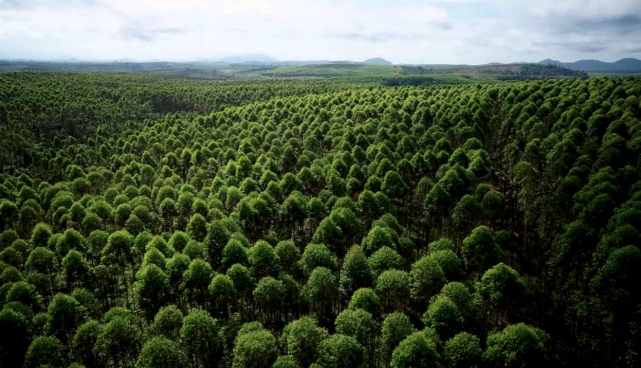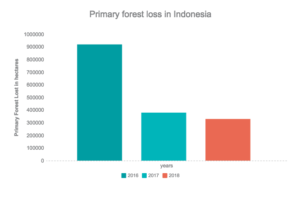
We, as citizens, promote sustainability in the perpetual search for greater prosperity and happiness. The market is not static. It constantly changes, adapting to social and environmental needs. Thus, through free enterprise, entrepreneurial citizens and managers of large companies have begun to invest time, effort, and resources in order to reduce the impact of human activities on the environment. A better balance between the environment and human activities generates more prosperity for a larger group of citizens.
While environmentalist and pseudo-healthy ideologies pursue the dream of the perfect world, citizens and businesses are busy finding the best solutions necessary to improve this balance solely relying on the scientific method.
Some food industries, for example, are rethinking their supply chains to further reduce their impact on the environment and preserve biodiversity.
Companies that invest in sustainable palm oil contribute to preserving the environment much more than the companies that have boycotted it – purely for commercial reasons.
The former seeks solutions that improve the lives of billions of citizens with hard work while preserving the environment.
The latter turn their back, preferring simple solutions that can be used via commercial slogans.
Initiatives in favor of sustainable palm oil, for example, have led to the implementation of new control systems that use satellite images to:
- Monitor the entire palm oil supply chain;
- Identify areas at risk of deforestation.
Moving towards greater environmental sustainability requires a strong collaboration between farmers, suppliers, producers, and consumers. Fortunately, the efforts of the private sector are met by the recent sustainability policies implemented by the governments of Southeast Asia.

According to the latest data published by Global Forest Watch, the situation in Indonesia is clearly improving. Government policies have achieved tangible effects, reaching concrete and immediate results. Forest loss has fallen to its lowest level since 2003, continuing the promising decline started in 2016. In the last year alone, the forest loss was 40% lower than the average annual loss rate in the 2002-2016 timeframe.
The fake-news of the media that see companies that use palm oil as pyromaniacs is also denied by data that shows only 11% of fires involve palm plantations. A 46% reduction in hectares of burned forest fires only between 2016 and 2017 clearly shows how local legislators and entrepreneurs are paying more attention to the Indonesian ecosystem.
For years now, there have been sustainability certifications for the palm oil supply chain that have achieved excellent results in reducing the environmental impact of palm oil plantations thanks to a close collaboration between companies, NGOs and local governments.
Thanks to organizations like RSPO, according to data from a few months ago, hectares of preserved High Conservation Value (HCV) land amounted to 263,177. The efforts of local politics and the private sector in placing greater emphasis on ecosystem protection are finally achieving relevant results. This deserves only praises and no form of defamation.
Recently one of the largest multinationals, committed to investing in the sustainability of its production processes, announced that it had achieved more than ¾ of its objective towards a zero impact on deforestation. Another one, Italian, has already reached 100%. How are they doing it? By merely investing, studying, experimenting. The big palm oil producers are using these new technologies to show their progress to consumers and investors. At the same time, these multinationals are committed to a ‘no peat’ approach, regardless of the depth of the peat, and, where possible, are seeking solutions for total peat restorations.
These monitoring systems should also be extended to industries that have a greater impact on the environment, such as rubber, paper, and soy. What are they waiting for?
Making supply chains transparent and sustainable allows companies to generate a competitive advantage with both investors and customers. Hence, soy’s investors’ request to stop deforestation caused by soy’s supply chain does not come as a surprise.
Those who boycott palm oil do not safeguard forests but abandon them. They do not promote biodiversity but abandon it. They do not favor development but abandon it.
